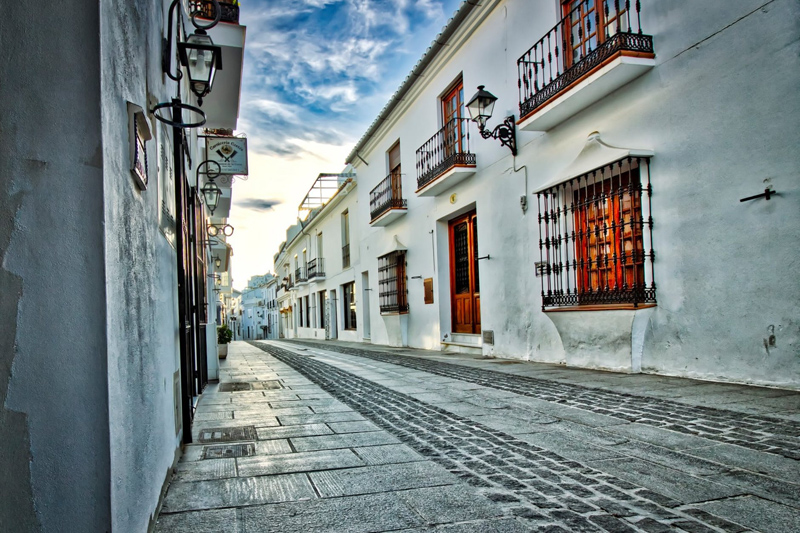Spanish Comparatives of Inequality and Spanish Superlatives.

We have already learned how to make equality comparisons in Spanish (See Comparativos de Igualdad (Spanish Comparisons of Equality)). But how do we compare unequal things?
A. Comparatives of Inequality
In English, we use "-er" at the end of the adjective, or "more" before the adjective. For example:
Your house is bigger than mine
This book is more interesting (than that one)
In Spanish, we use the following expression:
más + adjective / noun / adverb + que
So, the translations for the examples above are:
Tu casa es más grande que la mía
Este libro es más interesante (que aquel)
This is what we call "Comparaciones de superioridad" or "Comparisons of superiority".
But we may also want to express "inferiority comparisons" ("comparaciones de inferioridad"). The Spanish formula in this case is:
menos + adjective / noun / adverb + que
and it corresponds to the English form "less… than".
Examples:
Tu casa es menos grande que la mía
(Your house is less big than mine)
Este libro es menos interesante (que aquel)
This book is less interesting (than that one)
The table below will help you remember this:
1.- If after the comparative we use a number, we have to use de instead of que.
Tengo más de veinte lápices.
I have more than twenty pencils.
But with negative sentences, we use que even with numbers, and it's meaning is only:
No tengo más que veinte lápices
I only have twenty pencils
B. Superlatives
Superlatives are used to indicate that a person or thing is the best, most, worst or less, comparing it to other persons/things. In English we use: the most / the less (before the adjective / adverb) or -est, at the end of the adjective / adverb.
And this is the way to form Spanish superlatives:
El / la / los / las + noun + más / menos + adjective
As you already know, we'll use el / la / los or las depending on the genre and noun of the noun.
Examples:
Estos son los zapatos más caros.
These are the most expensive shoes.
Los edificios menos caros de la ciudad están aquí.
The less expensive buildings in the city are here.
Exceptions: Grande, Bueno, Bien, Malo and Mal have irregular forms:
For any question or doubt, feel free to e-mail me or just post a message at the forum.
¡Que tenga un buen día!
Angeles F.
VOCABULARY IN THIS LESSON (alphabetical order):

Editor's Picks Articles
Top Ten Articles
Previous Features
Site Map
Content copyright © 2023 by Angeles Fernández. All rights reserved.
This content was written by Angeles Fernández. If you wish to use this content in any manner, you need written permission. Contact Angeles Fernandez for details.
A. Comparatives of Inequality
In English, we use "-er" at the end of the adjective, or "more" before the adjective. For example:
This book is more interesting (than that one)
In Spanish, we use the following expression:
So, the translations for the examples above are:
Este libro es más interesante (que aquel)
This is what we call "Comparaciones de superioridad" or "Comparisons of superiority".
But we may also want to express "inferiority comparisons" ("comparaciones de inferioridad"). The Spanish formula in this case is:
and it corresponds to the English form "less… than".
Examples:
(Your house is less big than mine)
This book is less interesting (than that one)
The table below will help you remember this:
| Superioridad: | más … que | (more / -er... than) |
| Inferioridad: | menos ... que | (less … than) |
- NOTE:
1.- If after the comparative we use a number, we have to use de instead of que.
I have more than twenty pencils.
But with negative sentences, we use que even with numbers, and it's meaning is only:
I only have twenty pencils
B. Superlatives
Superlatives are used to indicate that a person or thing is the best, most, worst or less, comparing it to other persons/things. In English we use: the most / the less (before the adjective / adverb) or -est, at the end of the adjective / adverb.
And this is the way to form Spanish superlatives:
As you already know, we'll use el / la / los or las depending on the genre and noun of the noun.
Examples:
These are the most expensive shoes.
Los edificios menos caros de la ciudad están aquí.
The less expensive buildings in the city are here.
Exceptions: Grande, Bueno, Bien, Malo and Mal have irregular forms:
| Mi hermano es mayor que yo. Mi hermano es el mayor | ||||||
| Esta canción es mejor que la canción de Ana Esta canción es la mejor. | ||||||
| Mi hermano se encuentra mejor, gracias | ||||||
| Este libro es peor que la película Este libro es el peor. | ||||||
| Me encuentro peor, llama al doctor, por favor. | ||||||
For any question or doubt, feel free to e-mail me or just post a message at the forum.
¡Que tenga un buen día!
Angeles F.
VOCABULARY IN THIS LESSON (alphabetical order):
| aquel (m): that / that one | este (m): this | malo (m): bad |
| aquí: here: | estos (m): these | mayor: bigger / older |
| bien: good | grande: big | mejor: better |
| bueno (m): good | interesante: interesting | menos: less |
| casa (f): house | la mía (f): mine | peor: worse |
| caro (m): expensive | lápices (m) (sing: lápiz): pencils | veinte: twenty |
| ciudad (f): city | libro (m): book | zapatos (m): shoes |
| edificio (m): building | más: more |

Editor's Picks Articles
Top Ten Articles
Previous Features
Site Map
Content copyright © 2023 by Angeles Fernández. All rights reserved.
This content was written by Angeles Fernández. If you wish to use this content in any manner, you need written permission. Contact Angeles Fernandez for details.







